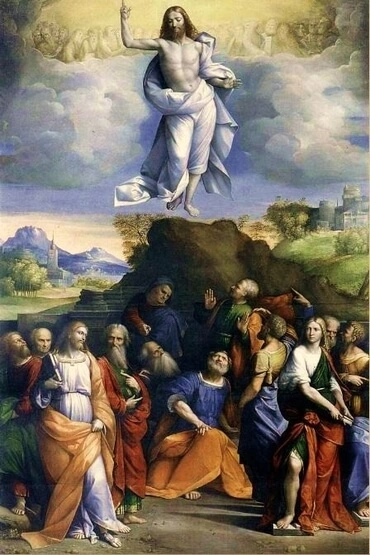Explanation of John 1:14
By Brian David

This is a key moment in this story. The beginning of John 1 explained that the Lord is perfect, infinite love which gave itself expression as divine truth. The duality of love and expression formed a template for humanity, which meant that the Lord’s duality made him the ultimate, divine human. It showed that the divine truth was the power of creation, and that the Lord shared that truth with humanity from the outset, so that people could receive His love and return it. But people kept turning away, and the Lord had to keep expressing his love in more and more external forms to maintain a connection.
By mentioning John the Baptist, the chapter showed that the Jews of the time still had the truth – the Lord’s Word – contained inside the rough-hewn images of the Old Testament. But they were so steeped in evil loves and false thinking that the connection to the Word – to the love within the Old Testament – was about to be snipped forever.
So the Word became flesh. The Lord passed the full expression of His love and His full humanity into physical flesh as Jesus. That way He could once again show the life within the existing Scriptures and could make His own life and His own words part of an expanded expression of truth for a new age of humanity. People could no longer see and feel the Lord’s love through the Old Testament, but they could see and feel it in the face and hands and words of Jesus.
The "glory" here expresses the blinding brilliance of that truth. The "Father" represents the Lord’s actual love itself, and being "begotten" means that the love was expressed in the form of truth. Being full of "truth" has a pretty obvious meaning, but "grace" means an affection, a love for what is true.
The Lord had to come. He had to let His humanity flow down into the flesh, into the most external of forms, because that was the only way we were going to see and embrace it.
(References: A Brief Explanation of the Teachings of the New Church 117; The Apocalypse Explained 1069 [3]; The Word 20; True Christian Religion 3, 85)
Apocalypse Revealed #58
58. "And am He who lives." (1:18) This symbolically means, who alone is life, and the only source of life.
In the Word of the Old Testament, Jehovah calls Himself living and one who lives, because He alone has life; for He is love itself and wisdom itself, and these constitute life.
That there is only one life, namely God, and that angels and people are recipients of life from Him, is something we showed many times in Angelic Wisdom Regarding Divine Love and Wisdom.
Jehovah calls Himself living and one who lives in Isaiah 38:18-19, Ezekiel 5:11.
The Lord is life also in respect to His Divine humanity, because the Father and He are one. Therefore He says,
...as the Father has life in Himself, so He has given the Son to have life in Himself... (John 5:26)
Jesus said..., "I am the resurrection and the life." (John 11:25)
Jesus said..., "I am the way, the truth, and the life." (John 14:6)
In the beginning was the Word..., and God was the Word... In Him was life... And the Word became flesh... (John 1:1-4, 14)
Because the Lord alone is life, it follows that He is the only source of life. Therefore He says, Because I live, you will live also. (John 14:19)






